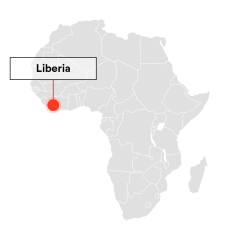Support economic empowerment to help prevent VAWG

Support economic empowerment to help prevent VAWG
Case Studies

In Liberia, the prevalence of female genital mutilation (FGM) is 38.2% among women and girls aged 15-49 years old. FGM is usually performed by traditional birth attendants and/or ‘zoes’ who are elderly women believed to have mystical powers and are members of the ‘Sande’ secret society, an influential custodian of culture in Liberia. During the FGM initiation process, girls are also trained in ‘bush schools’ to prepare them for married life and discussions of these processes are considered taboo in society. In addition to the cultural significance of the practice of FGM, there are also economic drivers behind the practice. ‘Zoes’ are paid by parents who send their daughters to bush schools. However, some parents have started to refuse to send their daughters to these schools and this has put pressure on the Sande society and also led to some forced abductions and initiations and extortions of parents.
Under the ‘Alternative Economic Livelihood Project’, Spotlight Initiative supported consultations between the National Traditional Council of Chiefs and Elders (NACCEL), the Ministry of Gender Children and Social Protection (MGSCP), and the Ministry of Internal Affairs (MIA) and a consensus emerged among the stakeholders that offering alternative sources of income to traditional zoes will encourage them to abandon the practice of FGM.
Spotlight Initiative therefore developed an economic empowerment programme focused on 311 ‘zoes’ to support them to with alternative livelihood opportunities and create incentives for them to discontinue performing FGM. Climate-start agriculture was introduced to the ‘zoes’ which supported their farming/agricultural activities. Twelve village savings and loans associations were also established for the ‘zoes’, which allowed them to generate savings and avail of loans for their personal and/or business needs. A six-month training on entrepreneurship, financial literacy, business development, livestock management, cassava farming, and aqua-farming was also conducted to strengthen their livelihood skills. Additionally, a vocational and heritage centre in Sonkay Town, Montserrado County was completed and will serve as a hub to house the training of ‘zoes’ on livelihood. It will also be a venue to promote an alternative rite of passage for adulthood. Another three centres will be constructed and over 500 more zoes are being engaged in the programme.
Results : As of mid 2021, 284 of the 311 targeted ‘zoes’ successfully set up alternative livelihood strategies and have an increased household income through their participation in VSLAs, practicing climate smart agriculture and selling crops, and running small business including crafts making and baking. Programme data suggests that these zoes now have little or no engagement in the practice of FGM. More widely, the programme has gradually built buy in at community level with traditional and local government leaders and the zoes are contributing to wider attitude and norm change.







